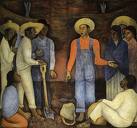
The Patrons of Husbandry (the Grange) was founded in 1867. As a result of the American Civil War, agricultural production was significantly damaged and the slavery based labor force of Southern States was changed by the 13th Amendment to the U.S. Constitution. While there have been farmer societies for hundreds of years, the Grange is the oldest continual farming fraternity in the country.
The formation of the Grange was in part the result of the agrarian uprising and populist revolt in response to rural peoples lack of political voice in a time of corporate monopolies. The founders intentionally developed a fraternal association that would use ritual obligations, membership benefits, political advocacy and the construction of a lodge hall to create social cohesion in rural farming communities. At the high point in membership in the 1870's there were 800,000 members and thousands of Grange Halls in nearly every state of the union.
As the demographics of communities have changed across the country, the privileges of the patrons has led to the closure of scores of Grange Halls - their buildings sold to private businesses and local government. The California State Grange itself boasted of having over 250 active Granges across the state. In Humboldt County, there were 5 Granges in operation in the 1870's, but it wasn't until the 1930's that 16 local community Grange Halls were in operation.
Now there are 10 halls in various states of activity. But in California, a politically based trademark dispute and ongoing legal battles have led to the revocation of the California State Grange (CSG) charter and the ouster of thousands of Grangers. The CSG's reformulation under the auspices of the National Grange led to formation of the California Guild continuing with the majority of the progressive membership. But throughout its history up to the present, Grange members have used "white privilege" to leverage political and economic power at the expense of agricultural workers and farmers of color. The Grange has used vague initiation criteria under the banner of "moral character" as well as a number of micro- aggression's to restrict membership. Grangers have used Immigration committees to influence policies of elected leaders.
They have lobbied for Alien Land Laws to limit ownership of farm land. They have lobbied for Chinese, Japanese and Filipino exclusion laws. They have installed themselves on local county councils of the Farm Service Agency of the USDA. They have been relatively silent on the working conditions of farmworkers. And in the present time, farmers of privilege have re-oriented their focus to work with craft foods and caterers while ignoring the rights of all people to have access to food. This research examines the continuation of these historic privileges within the Grange.